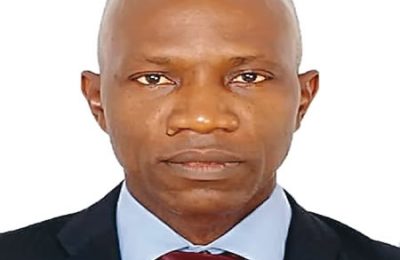Mr Chucks Omeife is a former president of the Nigerian Institute of Building (NIOB) and Chief Executive Officer/Managing Director, Build Consult Limited. In this interview with DAYO AYEYEMI, he says that the alleged annexation of the National Housing Fund (NHF) for other purposes or borrowing is a breach of trust and discouragement to those who have spent all their working life contributing to the fund.
What is your assessment of 2022 in terms of happenings in the real estate sector?

The real estate sector, for most part of the year, has been very turbulent because of the general economic situation in the country. There has been little capital for real estate transactions, hence lots of empty houses waiting for ownership. As you are aware, the government is the highest spender in the Nigeria economic setting and once there is a challenge in the availability of disposable funds from the government, this trickles down to all facets of the economy.
Shelter comes after people have been able to feed; unfortunately, there is hyperinflation that has made the issue of food get out of hand for everyone. The effect of the dollar exchange rate on the local currency has had serious consequences for the cost of food locally.
In effect, the issue of daily survival food-wise and the cloud of uncertainties surrounding the forthcoming election have impacted negatively the possibilities which the real estate used to provide. There is even confirmation that people are selling their homes in the spirit of relocation. In the real sense, real estate has not provided the level of support to the economy as it used to do.

What are the notable achievements?
We cannot be talking of achievement when some of recent government actions and pronouncements are trying to reverse some of the gains made in the past in terms of policy. The annexation of the National Housing Fund (NHF) for other purposes or borrowing from it is a total breach of trust and discouragement to those who have spent all their working life contributing to the fund without anything to show in terms of provisions of housing.
ALSO READ FROM NIGERIAN TRIBUNE
What are the shortcomings?
The shortcomings are policy somersaults which can negatively impact confidence building on the part of stakeholders.
What are those things the government and stakeholders, comprising developers, professionals, building materials manufacturers and others should have done better and failed to do?
The general government policies in the real estate sector are haphazardly formulated without one being an input into another. There are no fantastic implementable government housing policies that have been put in place. The challenge is that these policies are standing on their own. Policies are supposed to be progressive and connected so that the deliverables or output of one becomes an input for another; that is the only way the various policies put in place can make an impact.
A typical example is how do we encourage local production of building materials without a policy to restrict the importation of similar material just like the mouthed backward integration that was executed on some products in the manufacturing sector? It is this progressive formulation of policies and their connectivity that all stakeholders should advocate in the industry. As it is now, the majority of finishing materials used in the real estate are imported unfortunately at the detriment of local production. It is by putting together all these policies collectively that all the stakeholders can move the real estate sector forward.







